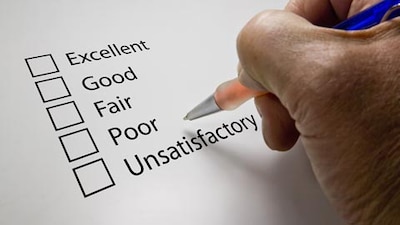“Yes, but” was the theme of the State Board of Education hearing Thursday on implementation of Senate Bill 10-191, the educator effectiveness law.
Witnesses representing various education interest groups (chiefly of the reform persuasion) paraded to the microphone in the board room, saying “yes,” that they greatly appreciate the work of the State Council for Educator Effectiveness. “But,” most of them added, they think the board needs to improve on some of the recommendations in the council’s recent report.
The law, passed a year ago, set in motion a multi-year process that started with development of recommendations by the council. The council submitted its report to the board last month (see story), and the board now is starting phase two of the process – crafting, considering and approving the regulations needed to implement the law.

The regulations have to be finished by November, and the board this week started its first intensive work on the task. The beginning of Thursday’s meeting was devoted to public comment. Here’s a sampling:
Amy Spicer, policy director for Colorado Stand for Children: “The recommendations are a great starting point,” but proposed proficiency standards for teachers and principals are “somewhat vague,” and the council proposal may give districts too much flexibility.
Tim Taylor, president of Colorado Succeeds, expressed concerns about some of the timelines in the council’s report and about delaying some decisions until after new evaluation systems are piloted in several districts. Taylor said he also was representing the views of Colorado Concern and the Denver Metro Chamber. Those groups submitted a letter saying, “We believe it is critical to ensure compliance monitoring and enforcement of the statewide rollout of the evaluation system. Additionally, that oversight should include consequences for non-compliance and incentives for those exceeding the state’s model system.”
Van Schoales, executive director of Education Reform Now: He called the council report “just the start” and said the state board needs to better define effectiveness standards, He added “it would a crime” if the new system ends up rating 95 percent or more of teachers as effective or highly effective.
While some of the testimony leaned toward greater uniformity in educator evaluations, other witnesses had a different view.
Ben DeGrow of the Independence Institute said it’s “imperative” that districts with good existing evaluation systems “not be bound by mandates or unduly limited.”
Vincent Badolato of the Colorado League of Charter Schools said the board should “be careful not to try to squeeze charters into a box where they don’t fit.”
The issue of how the new evaluation systems will balance state control with local district flexibility is central in the discussion of SB 10-191 implementation. The council wrestled with that question from the start, and board members agreed it’s one of the biggest decisions facing them.
“That is a huge part of our quest, the flexibility issue,” said Vice Chair Marcia Neal, R-3rd District.
The board spent the balance of the morning being briefed by council staff and members on the key areas of the council recommendations.
Data on student growth will be a key part of new evaluation systems, because the law requires that teacher and principal evaluations be based at least 50 percent on student growth. But council Co-chair Nina Lopez noted that data has its limits. “None of it is perfect. … We don’t have a black box that you can stick data in and a rating will pop out.”
She continued, “You’ll never remove the human element” from evaluations.
On June 8, the board will review draft rules developed by Department of Education staff and then hold public comment meetings on June 14 and July 12. Two rule-making hearings will be held Sept. 14 and Oct. 5. (Get more information on the public comment process.)
